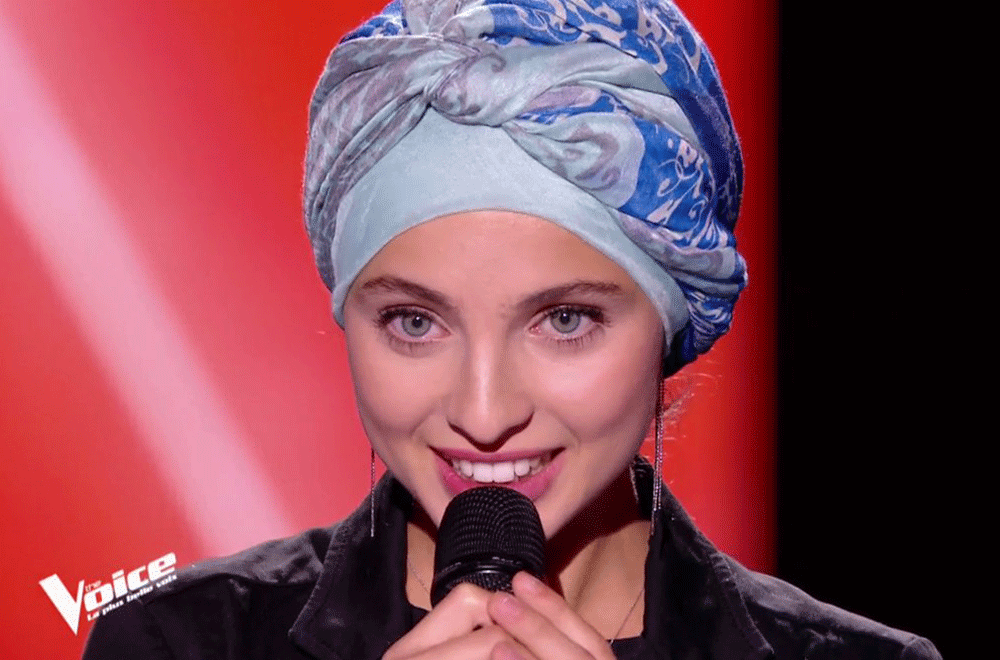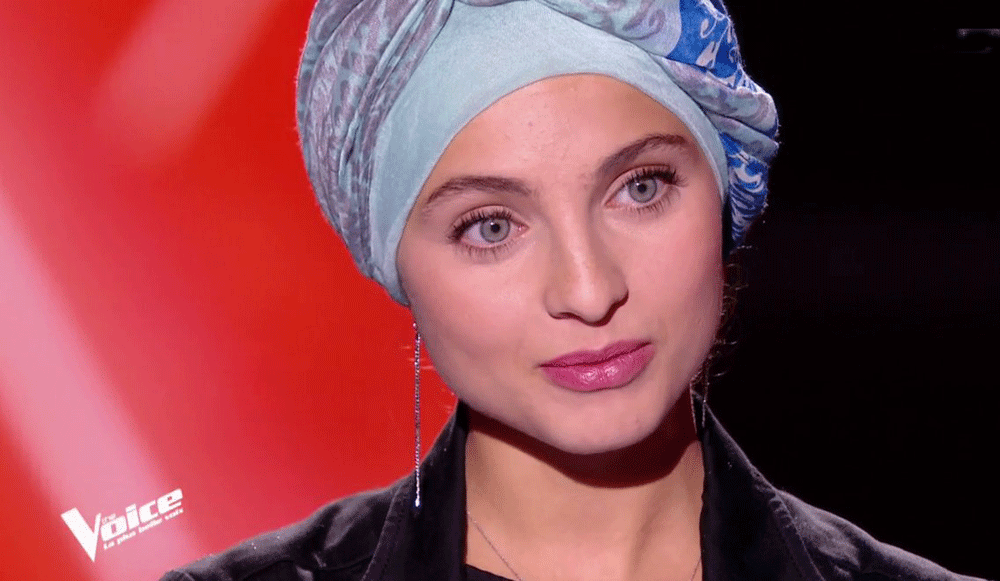
In just two days, the relatively unknown Mennel Ibtissem is now a name many recognize, following her stunning audition in France’s The Voice. The 22-year-old French contestant, donning a colorful turban, received massive waves of approval– as well as controversy – as the video of her audition, in which she belts an English and Arabic rendition of Leonard Cohen’s “Hallelujah,” continues to make the rounds.
Born in the eastern French city of Besançon to a Syrian-Turkish father and a Moroccan-Algerian mother, Ibtissem’s beautiful interpretation of the 1984 song was enough for all four French coaches – singer and actor Florent Pagny, singer Pascal Obispo, singer and model Zazie, and the Lebanese-born singer Mika – to turn their chairs around. Ibtissem’s performance also garnered support from fans across the social media sphere.

But apart from causing a surge of excitement onstage and off, the singer has also caused a tidal wave of hostility from pro-Israel and Islamophobic groups because of two-year-old posts in which she criticized her government’s foreign policy, and expressed her solidarity with Palestinians and the plight they face.
According to the news portal Middle East Eye, pro-Israel “sites have accused her of being "a member of the Muslim far-right" and "conspiratorialist” after she took stands on Facebook against Israel and questioned the involvement of armed Islamists in the Nice terrorist attacks.”
She has since gone on social media to respond to accusations. The rough translation of her post in French on Facebook reads:
Since yesterday, I've been reading a lot of things that have gone out of context. I am prepared for intentions that are not mine and which do not reflect my thoughts. I was born in Besançon, I love France, I love my country. I strongly condemn, of course, terrorism. That was the reason for my anger. How to imagine defending the indefensible! I advocate a message of love, peace and tolerance, proof is my choice to sing Hallelujah by Leonard Cohen. This song perfectly illustrates the message I wish to make as an artist.”
Speaking to French daily Le Figaro earlier this month, Ibtissem spoke about her choice of head cover, explaining that she felt her turban was acontemporary take on wearing veil, and saw it as inseparable from her look.
“You will never see me without it," she said.

















